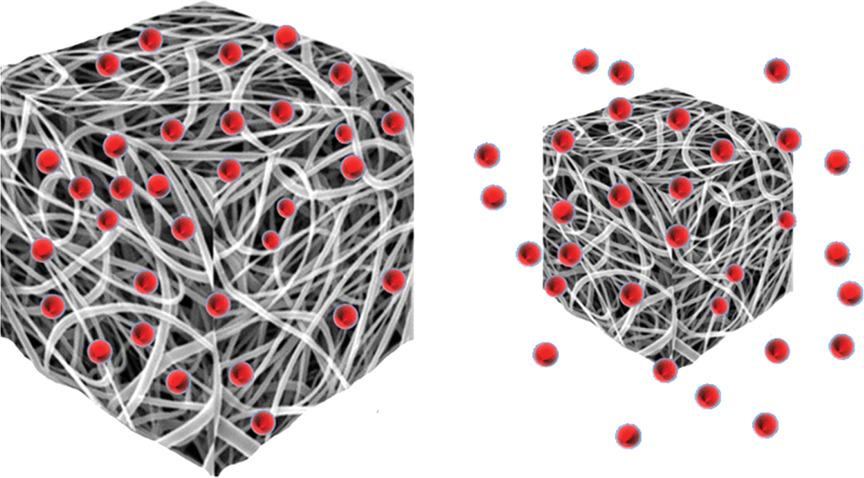News
Controlled-Release LCST‐Type Nonwoven Depots via Squeezing-Out Thermal Response
31.01.2019
F. Käfer, R. Vilensky, G. Vasilyev, E. Zussman, S. Agarwal
Macromol. Mater. Eng. 2018, 1800606.

A novel thermoresponsive fibrous matrix as controlled release depots upon heating is described. The matrix is composed of electrospun fibers of a lower critical solution temperature (LCST)‐type poly(methacrylamide‐co‐N‐tert‐butylacrylamide‐co‐4‐acryloylbenzophenone) P(MAAm‐NtbAAm‐ABP) copolymer. Spherical particles, simulating depots of drugs, are embedded with liquid‐filled inter‐fiber spaces (pores). On heating above 25 °C up to 45 °C, the nanofibers undergo a contraction of about 40%. This solid deformation is attributed to the LCST transition. Fibrous matrix contraction drives expulsion of depots and water solution stored in the pores of the matrix, as evidenced by in situ observations. The liquid flow in the deformable porous medium demonstrates liquid drainage from the matrix as a function of temperature. Experimental results reveal that 70% of the particles are expelled from the matrix upon heating to 45 °C from room temperature. The presented particles encapsulation and release model system using LCST‐type fibrous matrix can be used as a transdermal patch.

